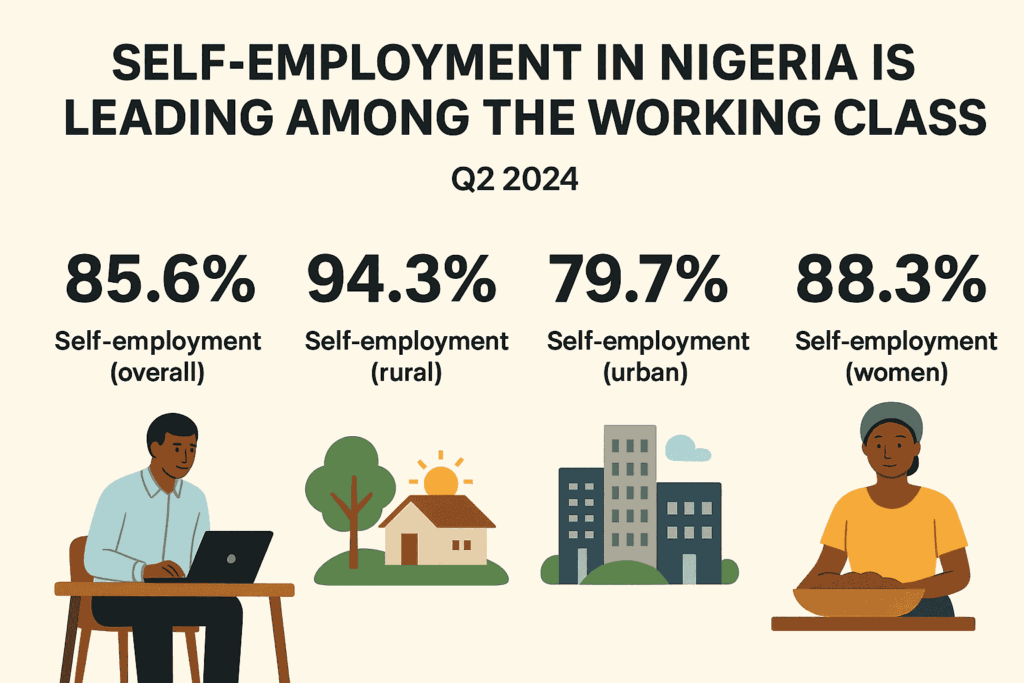In Q2 2024, employment data from the National Bureau of Statistics, NBS revealed that 85.6% of the working class in Nigeria are self-employed.
To put it in context, there are about 6 self-employed workers for every 1 salaried/formal worker, or about 6 in 7 workers are self-employed. Why are so many Nigerians self-employed? Is this a good or bad thing?
This is an overview of how self-employment dominates among Nigeria’s working class, paired with the most recent data available.
- New Decision for Maryam Sanda as She Gets 12 Years

- China-Nigeria Sign $400m Deal to Boost Steel Production

- Ramping up Renewables in Nigeria After UN Emission Report

Self-Employment in Nigeria Overview
Self-employment remains the dominant employment type, hovering between 84–88%, with slight quarter-to-quarter fluctuations.
The obvious reason is the urban–rural disparities. Rural residents predominantly rely on self-employment. They often take up agricultural and small-scale trade, while urban dwellers are slightly more likely to be monthly wage earners.
Gender has also proven to be significantly relevant in this topic. Women are more likely to engage in self-employment, reflecting both the opportunities and barriers in formal wage employment.

NBS Records
Informal employment remains overwhelmingly dominant with 93% in Q2 2024, up from 92.7% in Q1 2024. In the NBS Q3 2023 report, the informal share was 92.3%. In Q2 2023, it stood at 92.7%.
Clearly, the majority of Nigerians work outside formal regulatory frameworks, lacking social security, contracts, and benefits. These figures do, however, suggest increasing workforce engagement and modest improvements in unemployment.
Implications
Self-employment clearly dominates as the principal form of work among Nigeria’s working class, driven by limited formal opportunities, especially in rural areas and among women. Many Nigerians self-start to sustain livelihoods amid economic instability and scarce wage jobs.
They lack social safety nets, health insurance, pensions, and unemployment benefits, exposing them to vulnerability.







